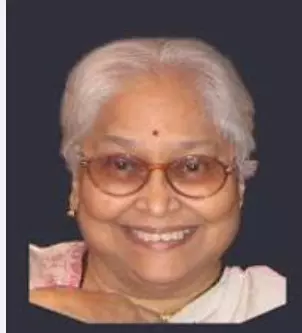Enable: An occupational therapist’s journey brought to light

International Women’s Day is not only about identity, but also legacy. Thus, here’s to a woman professional putting down her life’s work and experiences into a body of work that hopes to bring in young talent to a profession as noble as it is rewarding.
Originally drafted by the late award-winning Occupational Therapist Aruna Padmakar Tole, head of the Department of Occupational Therapy at Mumbai’s premier Tata Memorial Hospital—“Enable” is a one-of-its kind memoir cum textbook for budding occupational therapists. The book has been redrafted and co-authored by her daughter the noted TIFR neuroscientist Dr. Shubha Tole, and journalist-writer Kalyani Sardesai, ten years after Aruna Tole passed away.
“The book was my late mother’s long-standing dream and the sum of her life’s work,” said Shubha Tole. “It took some time and effort to redraft and simplify a technical, para-medical text into a work that can be read and understood by young professionals and students on the cusp of choosing a career”.
Given that the original writer is no more—and the massive treasure trove of source material on hand, Shubha reached out to Kalyani Sardesai, and together, they redrafted the book with a first section that is more accessible to a non-specialist audience, and a second that is more technical and has valuable educational details for students and practitioners of OT.
The descriptions of the prostheses, aids and appliances Aruna Tole created are unique original designs, each one customized to the needs of individual patients. Most of her patients were from economically strained backgrounds, so cost and Indian lifestyle were guiding principles in her designs. “A knee and ankle joint must flex completely, or the person cannot squat” she would say, and then go ahead and fabricate one.
What is OT?
To explain in brief, occupational therapy is a branch of health care that helps people of all ages who have physical, sensory, or cognitive problems due to a disease or disability. OT can help them regain independence in all areas of their lives. Occupational Therapists help with barriers that affect a person’s social and physical needs. To do this, they use everyday activities, exercises, and other therapies.
Enable: An Occupational Therapist’s journey.
The late Aruna P Tole carried out her life’s work at the Tata Memorial Hospital, in the rehabilitation of cancer patients from different socio-economic backgrounds. (However, it must be noted that OT is for any patient who has a disability for whatever reason.) Aruna Tole’s journey is inspiring for the manner in which she optimized resources and know-how over a career spanning forty years—starting in the sixties, a time when India was still coming to terms with the challenges of Independence. Among her earliest supervisors was the iconic cancer specialist Dr. Jehangir Jussawalla who recognized her talents and wrote her a letter of appreciation that is included in the book. As a result, she touched the lives of many.
In the words of K. Kasturirangan, former chairman of the Indian Space Resource Organisation: “People like Aruna Tole need to be honoured by every segment of society because the relevance of their work is much broader than the conventional professionals. Her boundless energy, creativity and compassion made all the difference in bringing much needed life and succor to patients when they needed help, a valuable contribution to humanity. My late wife was one of those touched by her grace and dedication.”
The challenges for Occupational Therapy in India include shortage of resources and funding, and a need for better comprehension of the value of rehabilitation services. Aruna Tole’s journey demonstrates how a compelling desire to help patients using available resources took her far beyond the traditional description of her job. Nothing was beyond her reach when a patient needed help. She included in her orbit engineers, carpenters, lathe workers, tailors, and latex manufacturers to achieve her goal: to produce devices to help patients who could not afford expensive imported products. Her passion and commitment motivated everyone she worked with and is still an inspiration to young OTs who aim to bridge the gap between what is and what could be, in hospitals, rehab centres, child and aged care programmes, and industry.
“The book includes case studies and experiments she carried out in the course of rehabilitation and demonstrates by example how a gifted and driven professional can go above and beyond the accepted norms and raise the bar. Above all, it brings home the point that no technology is above the human touch,” said Kalyani Sardesai.
Published by Authors Upfront, the 300 pages book is priced at Rs.799 and will be available on Amazon.
The book will be donated to medical libraries and OT training programmes across the country as a tribute to Aruna Tole.

